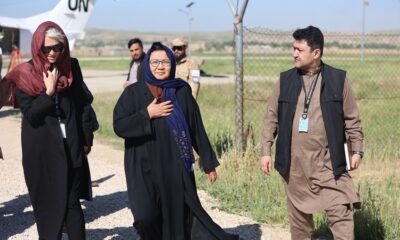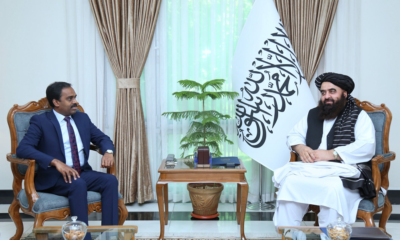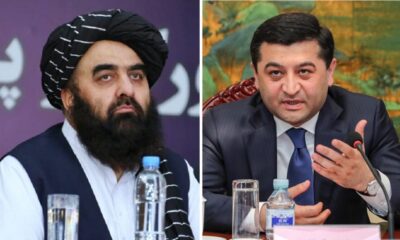Business
Traders expect Pakistan’s Rupee to lose ground in coming week
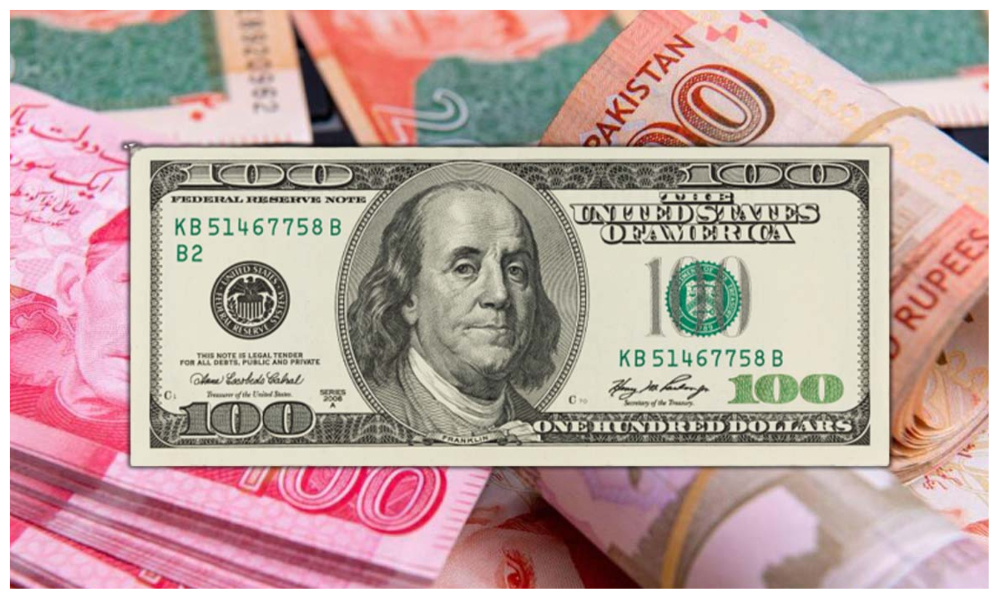
Traders expect the Pakistani rupee to weaken further in the coming week owing to a sharp decline in foreign exchange reserves brought on by fresh repayments of external debt.
Traders say this is causing concern for investors who are worried about how the country’s economic situation will develop.
“We expect the rupee to depreciate much further during the course of the upcoming week due to declining foreign reserves and repayment of foreign loans. Any developments on the IMF (International Monetary Fund) front are being eagerly watched by the market,” a forex trader said.
The local currency closed at 226.94 against the US dollar on Monday while it ended the week at 227.14 against the dollar on Friday.
Pakistan paid back $600 million to the Emirates NBD Bank and $420 million to the Dubai Islamic Bank, causing the State Bank of Pakistan’s (SBP) reserves to fall to a critically low level of $4.5 billion.
The coming week is turning out to be significant for Pakistan’s economy as a donors’ conference is set to begin on Monday, January 9, which will be led by the US in partnership with Pakistan to garner support for post-flood aid, according to Geo TV.
Currently, Pakistan’s chief of army staff is visiting Saudi Arabia and the United Arab Emirates. Experts have said “no one is second guessing what this trip is about.”
Meanwhile, the delay in IMF funding of $1.1 billion has made Pakistan struggle to allay default fears.
Islamabad and the IMF differ over a review of policy and reforms the Fund is requiring in the country. The IMF’s programe review was supposed to be finished in November, Geo TV reported.
The IMF programe is connected to another essential foreign financing, making it difficult for the country to meet its external funding requirements. Up until June, they amounted to more than $30 billion and included imports, especially energy, and debt repayments.
The decline in the forex reserves put pressure on the rupee owing to the government’s slow progress in rolling over and securing foreign inflows from international lenders.
Given that elections are slated to take place this year, the government keeps delaying the IMF’s requirements out of concern for further political capital loss.
The local currency has lost 28.3% of its value against the dollar in 2022.
Finance Minister Ishaq Dar has assured that the government would complete the IMF programe.
Business
Afghan businessman to invest up to $12 million in iron ore extraction in Panjshir

An unnamed Afghan businessman is reportedly ready to invest up to $12 million in iron ore mining in Panjshir province, the provincial governor’s spokesman Saifuddin Laton said Sunday.
According to Laton, the businessman has shown interest in investing between $3 and $12 million to mine an area covering 22 square kilometers in Paryan district in Panjshir.
Laton said the contract for this project has been approved by the Economic Directorate of the Prime Minister’s Office of the Islamic Emirate of Afghanistan (IEA).
In addition to extraction, the businessman will also carry out the processing and packaging of the iron ore within the province to create greater added value.
Laton said that in the first phase, the company will launch an exploratory program of the reserves over six months, during which around 500 jobs will be created.
After completing this phase, formal extraction work will begin, he said.
Afghanistan possesses substantial iron ore reserves, estimated at 2.2 billion tonnes, making it a top 10 country for extractable iron.
The largest deposit, Hajigak, is located in Bamiyan province, and contains an estimated 1.7 billion tonnes of high-grade ore.
Business
Afghan deputy agriculture minister leaves for Iran’s international expo
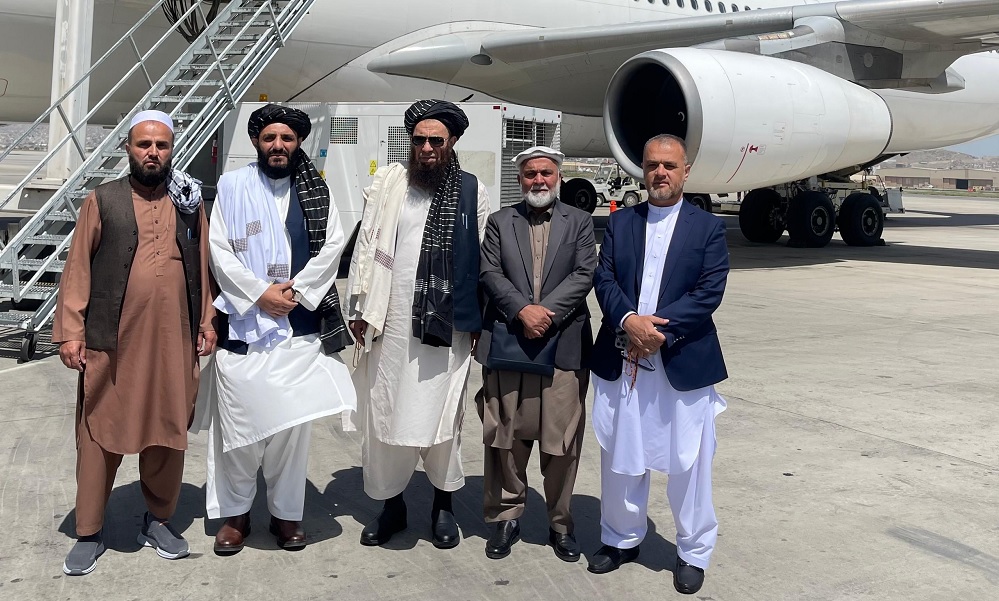
Sadri Azam Osmani, Deputy Minister of Agriculture, Irrigation and Livestock, on Saturday left Kabul to participate in the 7th International Exhibition of Iran’s Export Capabilities in Tehran.
The expo will be held from April 28 to May 2. According to the organizers, between 2,000 and 3,000 foreign traders from around the world are expected to attend.
Osmani expressed hope that this trip will pave the way for the growth of trade and attract more investments to Afghanistan.
Business
Pakistan’s deputy PM discusses Trans-Afghan Railway Line project with Uzbek FM
On Thursday, in a post on X, Pakistan’s Foreign Ministry said Dar hoped that the three countries would soon sign the framework agreement for this important regional connectivity project.
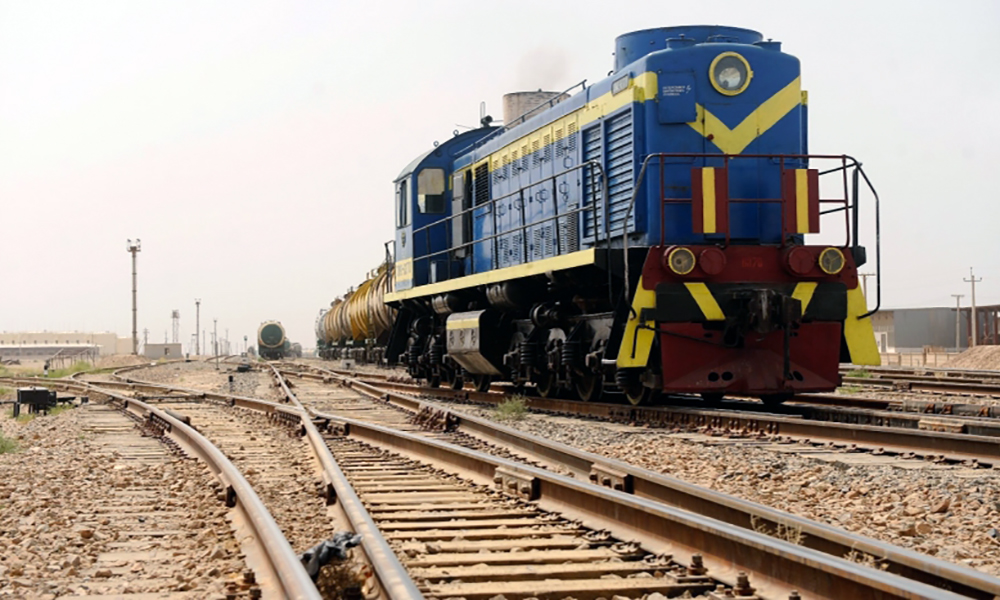
Pakistan’s Deputy Prime Minister and Foreign Minister Ishaq Dar held a telephone conversation with the Foreign Minister of Uzbekistan, Saidov Bakhtiyor Odilovich, on Thursday to discuss the Trans-Afghan Railway Line Project.
This comes after Dar’s recent visit to Kabul, where he held talks with officials on the planned Uzbekistan-Afghanistan-Pakistan Railway Line Project.
The three neighboring countries signed an agreement in February 2021 to construct a 573-kilometer railway line through Afghanistan, connecting landlocked Central Asia to Pakistan seaports, with an estimated cost of $4.8 billion to enhance regional economic connectivity.
On Thursday, in a post on X, Pakistan’s Foreign Ministry said Dar hoped that the three countries would soon sign the framework agreement for this important regional connectivity project.
The two leaders also discussed strengthening bilateral relations, enhancing economic and trade connectivity, promoting people-to-people ties, and exchanged views on current regional and international issues.
-

 Sport5 days ago
Sport5 days agoSri Lanka A defeats Afghanistan A by 4 wickets in Abu Dhabi
-

 Business5 days ago
Business5 days agoAfghanistan’s growth prospects remain uncertain amid global uncertainty: World Bank report
-

 World5 days ago
World5 days agoUkraine ready to hold talks with Russia once ceasefire in place, Zelenskiy says
-

 Latest News4 days ago
Latest News4 days agoAWCC activates new site in Nangarhar’s Kuz Kunar district
-

 Latest News4 days ago
Latest News4 days agoTarig Ali Bakheet and Japan’s Deputy Foreign Minister discuss Afghanistan’s situation
-

 Climate Change5 days ago
Climate Change5 days agoPowerful earthquake of 6.2 magnitude shakes Istanbul
-

 Business4 days ago
Business4 days agoPakistan’s deputy PM discusses Trans-Afghan Railway Line project with Uzbek FM
-

 Latest News5 days ago
Latest News5 days agoSpecial meeting will be held to launch Afghanistan–Russia joint commission, says Kabulov


